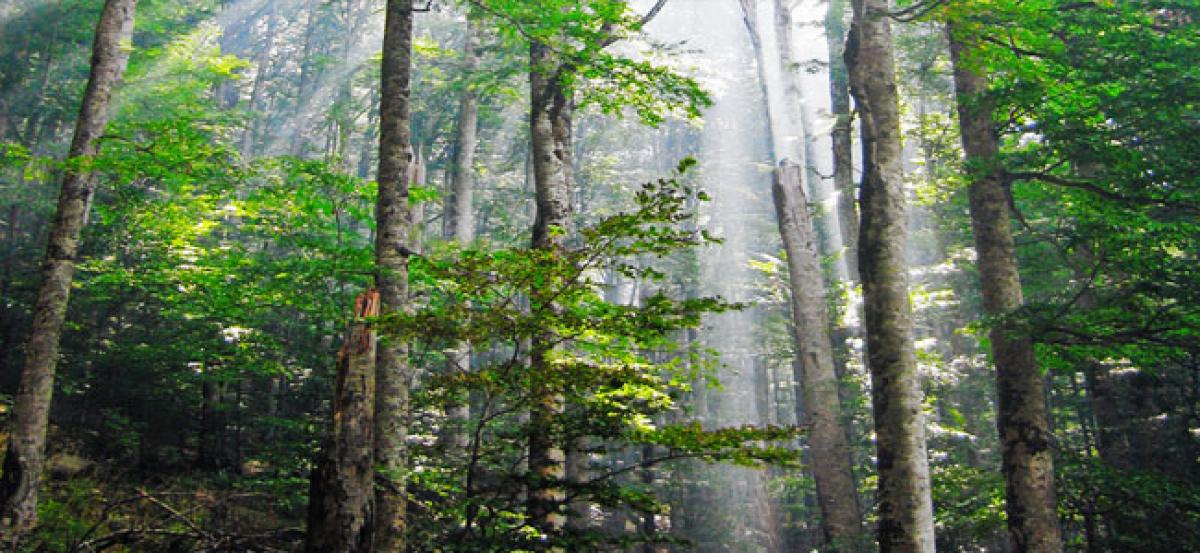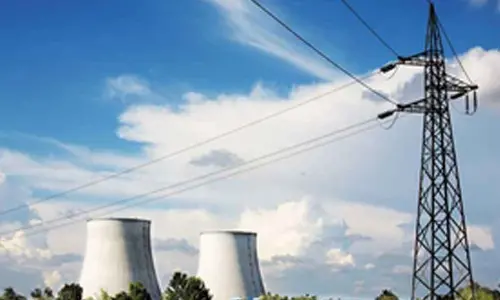Earth's intact Forest shrinking rapidly than before

Earth\'s intact forests have shrank by nearly 90,000 square kilometres an area the size of Austria from 2014 to 2016, 20 percent faster than during the previous 13 years, according to findings presented at a conference in Oxford this week.
PARIS: Earth's intact forests have shrank by nearly 90,000 square kilometres an area the size of Austria from 2014 to 2016, 20 percent faster than during the previous 13 years, according to findings presented at a conference in Oxford this week.
Despite UN-led efforts to halt deforestation, nearly ten percent of undisturbed forests have been fragmented, degraded or simply chopped down since 2000, according to the analysis of satellite imagery. Average daily loss over the first 17 years of this century was more than 200 sq km (75 sq miles).
"Degradation of intact forest represents a global tragedy, as we are systematically destroying a crucial foundation of climate stability," said Frances Seymour, a senior distinguished fellow at the World Resources Institute, and a contributor to the research.
"Forests are the only safe, natural, proven and affordable infrastructure we have for capturing and storing carbon."
The last forest frontiers also play a critical role in maintaining biodiversity, weather stability, clean air, and water quality. Some 500 million people worldwide depend directly on forests for their livelihood.
So-called "intact forest landscapes" which can include wetlands and natural grass pastures are defined as areas of at least 500 sq km (200 sq miles) with no visible evidence in satellite images of large-scale human use. Concretely, that means no roads, industrial agriculture, mines, railways, canals or transmission lines.
"Many countries may lose all their forest wildlands in the next 15 to 20 years," Peter Potapov, an associate professor at the University of Maryland and lead scientist for the research.
On current trends, intact forests will disappear by 2030 in Paraguay, Laos and Equatorial Guinea, and by 2040 in the Central African Republic, Nicaragua, Myanmar, Cambodia and Angola.
"There could come a point in the future where no areas in the world qualify as 'intact' anymore," said Tom Evans, director for forest conservation and climate mitigation at the Wildlife Conservation Society.
In tropical countries, the main causes of virgin forest loss are conversion to agriculture and logging. In Canada and the United States, fire is the main culprit, while in Russia and Australia, the destruction has been driven by fires, mining and energy extraction. Compared to annual declines during the period 2000-2013, Russia lost, on average, 90 percent more each year from 2014 to 2016.
For Indonesia, the increase was 62 percent, and for Brazil it was 16 percent. The new results are based on a worldwide analysis of satellite imagery, built on a study first done in 2008 and repeated in 2013.
"The high resolution data, like the one collected by the Landsat programme, allows us to detect human-caused alteration and fragmentation of forest wildlands," said Potapov.
Presented at the Intact Forests in the 21st Century conference at Oxford University, the finding will be submitted for peer-reviewed publication, said Potapov, who delivered a keynote to the three-day gathering.
Set up in 1994 and backed by green groups such as the World Wildlife Fund, the self-stated mission of the Forest Stewardship Council (FSC) is to "promote environmentally appropriate, socially beneficial and economically viable management of the world's forests."
Many forest-products carry the FSC label, designed to reassure eco-conscious consumers.
In Cameroon, about 90 percent of FSC-monitored forest wildlands disappeared.
"FSC is an effective mechanism to fragment and degrade remaining intact forest landscapes, not a tool for their


















